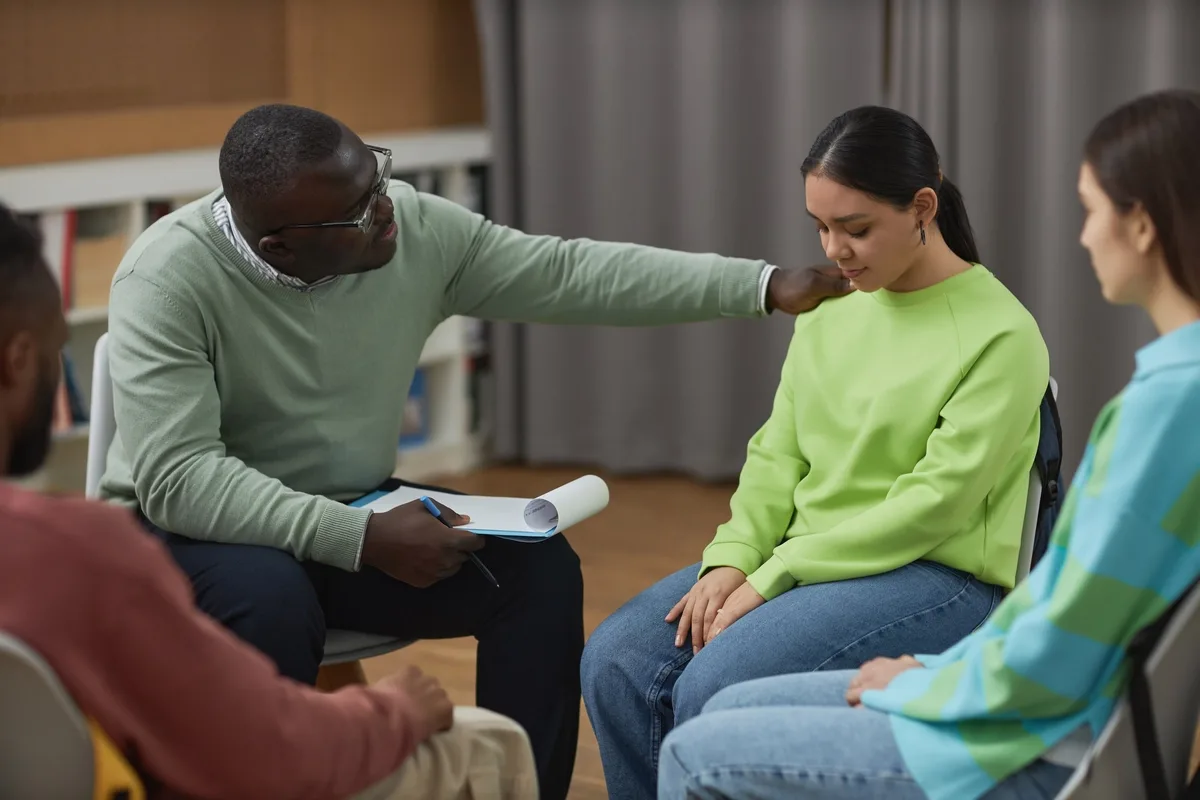24/7 Helpline:
(866) 899-111424/7 Helpline:
(866) 899-1114
Learn more about PTSD Rehab centers in Hoxie
PTSD Rehab in Other Cities

Other Insurance Options

BHS | Behavioral Health Systems

Meritain

Carleon

Molina Healthcare

Private insurance

Cigna

Aetna

UnitedHealth Group

American Behavioral
Beacon

Premera

AllWell

Magellan Health

MHNNet Behavioral Health

Optima

BlueCross

ComPsych

Ambetter

GEHA

EmblemHealth

Hometown Behavioral Health Services of Arkansas
Hometown Behavioral Health Services of Arkansas is a private rehab located in Hoxie, Arkansas. Homet...

Preferred Family Healthcare
Preferred Family Healthcare - Southwest Broad Street offers outpatient services for individuals with...







Mid South Health Systems
Mid South Health Systems is a drug and alcohol rehab in Walnut Ridge, Arkansas. They provide outpati...

The Last Resort
The Last Resort Recovery Center specializes in helping adult men overcome substance abuse addiction ...

Goochland Powhatan Community Services
Goochland Powhatan Community Services is a public rehab located in Powhatan, Virginia. Goochland Pow...

Cornerstone Community Counseling
Cornerstone Community Counseling, located in Imboden, Arkansas, offers behavioral health care servic...

Ray of Hope Street Ministry
Ray of Hope Street Ministry is a private rehab located in Smithville, Tennessee. Ray of Hope Street ...






































































































































































